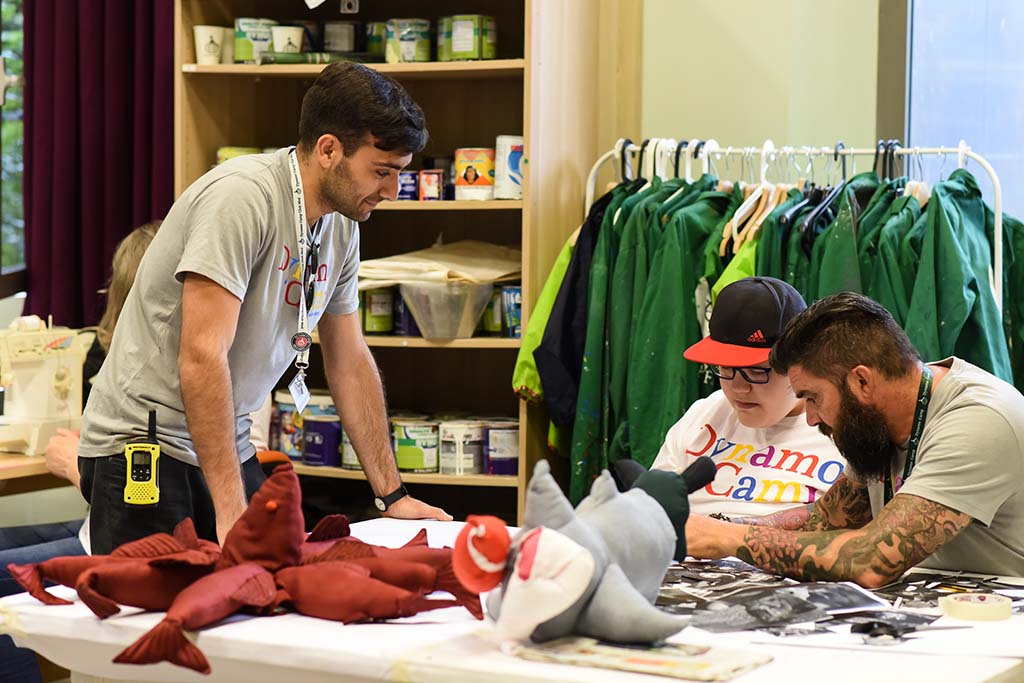Being discreet is my job
At Dynamo, doctors and nurses handle a wide range of diverse and complex pathologies during each session. However, they do so without drawing attention to themselves by wearing white coats. The main goal is to provide a safe and worry-free experience for everyone staying at the Camp.
Daniele Bertin, the medical director of the Camp and a specialist in pediatric oncohematology at Regina Margherita in Turin, explains Dynamo’s approach in managing the various pathologies hosted in each session. The Recreational Therapy programs primarily target children (aged 6-12 years) and adolescents (aged 13-17 years) with severe and chronic illnesses. These young guests come from all over Italy based on medical criteria shared with major hospitals in the country.Since its opening, the Camp has seen a steady increase in the number of children and teenagers it accommodates, reaching 1,238 in 2019. Particularly, from 2017 to 2019, they hosted around 200 more campers, a growth rate of 33%. This expansion was possible due to structural changes in the Club Med (the internal medical center) and the houses, which now have effective control tools to manage increasingly complex situations, focusing on new needs. Bertin emphasizes that the selection criteria not only consider the type of disease but also the individual’s level of autonomy. The aim is to include everyone while ensuring a safe holiday for all.

The Camp is designed to be as inclusive as possible, and accessibility is not limited to physical barriers. For instance, Augmentative Alternative Communication (AAC) introduced in 2016 allows communication even with children who cannot use verbal language. The Dynamo philosophy ensures that doctors and specialized nurses are available 24/7, but they maintain a “hidden” and discreet presence, enabling the children to have a special experience without feeling like they are in a medical facility. They dress like the rest of the staff, with only the lanyard displaying their names in white instead of green for easy recognition by new volunteers. Only doctors and nurses have access to the medical records of campers, protecting their privacy and allowing staff and volunteers to interact without focusing on the child’s illness.
Managing diverse pathologies is not solely the responsibility of doctors; the staff also plays a crucial role in organizing activities that cater to everyone’s needs. Vito Nigro, the Camp’s director, highlights the importance of thorough preparation, where parents fill out detailed questionnaires that provide crucial information about the severity and character of the child’s illness. The staff observes the children upon their arrival to identify any additional needs and constantly adapts activities to meet those requirements.
In recent years, even children who require a night respirator have been welcomed at the Camp, thanks to collaboration with the Respirando association of Pisa and doctors from Bambin Gesù, including Professor Renato Cutrera. To accommodate these campers, the Camp increased night-time nursing care and made adjustments to the houses, creating glass partitions to muffle the noise of the respirator and allowing these kids to sleep with their peers without disturbing anyone. This change has enabled them to enjoy a holiday away from their families and take steps towards independence, leaving a heartwarming image of their smiles and happiness.
Source: DYBC MAGAZINE



